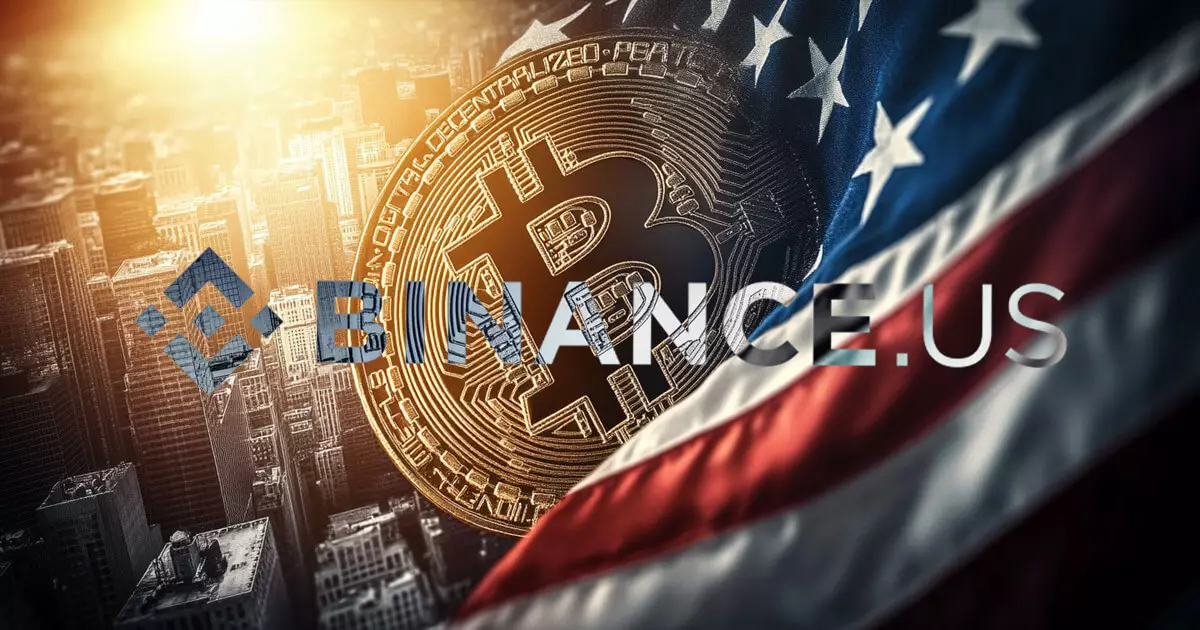Changpeng Zhao, the prominent figure behind the Binance crypto exchange, has recently found himself at the center of controversy following a Wall Street Journal (WSJ) report alleging discussions of an investment deal between his company and the family of former US President Donald Trump. Zhao’s emphatic rejection of these claims, articulated through social media, underscores not just his personal stance but also highlights a broader narrative within the cryptocurrency landscape. His response is not merely a defense; it signifies the strenuous fight against misinformation that plagues the industry. Zhao asserts that such reports are more than just inaccurate—they are maliciously tinted attacks on both the political and financial terrain where cryptocurrencies strive to gain legitimacy.
Zhao’s statement on X, where he dismissed the WSJ’s claims as ‘fake news,’ emphasizes a critical viewpoint: that the media, particularly legacy outlets, wield considerable power in shaping public perception. In an environment where crypto continues to face scrutiny and skepticism, Zhao’s insistence on the legitimacy of his stance is a commendable act of self-advocacy. His characterization of the media’s role as a participant in an age-old ‘war on crypto’ reflects a reality that many in the crypto community resonate with—a constant battle against disparaging narratives.
A Landscape of Mistrust: Political and Financial Dimensions
The interplay between cryptocurrency and traditional financial systems is fraught with tension. Zhao’s criticisms hint at a lack of trust not only in media narratives but also in governmental and traditional financial attitudes toward crypto. The WSJ report seems to present a dual threat: it insinuates potential corruption or favoritism in high places while also undermining the credibility of a leading crypto platform. It raises an essential question: can the crypto industry genuinely thrive in a space that is so heavily hindered by political machinations?
As Zhao points out, echoes of anti-crypto sentiment from past administrations linger, creating an environment where the advancements and legitimacy of cryptocurrency may be obstructed by outdated biases. The idea that discussions of a presidential pardon could be floated in the realm of a business transaction encapsulates the intertwining of personal ambition and national politics, effectively making cryptocurrencies pawns in a game that often overlooks their potential for innovation and reform.
Investment and Allegations of Favoritism
Zhao’s dismissal of the WSJ article deals not only with misinformation but also with the more problematic implication of favoritism—an idea that raises eyebrows both in the financial community and public consciousness. The notion that Trump’s family might consider investing in Binance.US while simultaneously discussing presidential pardons introduces the specter of conflict of interest. It beckons scrutiny over whether such financial partnerships could pave the way for leveraging political clout for corporate benefit.
In this context, Zhao’s defense becomes a potent reminder of how essential transparency is in the crypto realm. If investments are made on the basis of favoritism rather than innovation or merit, it could severely undermine the credibility that many crypto advocates tirelessly work to build. Zhao appears aware of this precarious balance, advocating for ethics while navigating a world that often rewards backdoor deals and obscure motivations.
Bobbing and Weaving Between Accusations and Reality
The response from Zhao reflects a prevailing sentiment within crypto enthusiasts—that mainstream media can be a threat rather than a partner in understanding the intricate dynamics of cryptocurrency. His tweet reiterating his stance amidst the claims has become a rallying cry for many within the space, who often feel that they must empower themselves against the tidal wave of negative press and projection from traditional media outlets.
By framing the WSJ report as an attack on both his credibility and the very essence of innovation that cryptocurrency stands for, Zhao positions himself not only as a defender but as an emblem of a movement that aims for respect and acknowledgment in a world that often dismisses and caricatures it. The insistence on a narrative focused on creativity, progress, and the potential to change financial systems should resonate broadly, speaking to a generation that craves both financial independence and technological empowerment.
In an age where media narratives can shape policy, Zhao’s vigorous objection and willingness to challenge the narrative set forth by the WSJ should not only be seen as a personal defense but as a broader call to arms for anyone invested in the future of decentralized finance. It is this spirit of resilience that will define the next chapter of the crypto saga, pushing against the tides of misinformation and aiming for a more favorable collaboration between technology and regulation.














